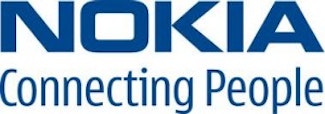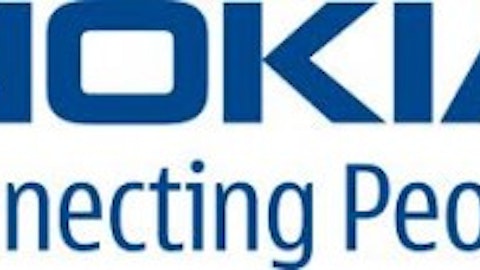
Too much of a good thing
There are enough reports, articles, and blogs explaining that Nokia needs the Windows Phone OS to work, but it’s important to take a minute to consider a scenario where the Windows Phone software becomes too successful. Yes, too successful. For Microsoft Corporation (NASDAQ:MSFT) , there’s no real downside to this. Microsoft is smack-dab in middle of reinventing itself within the mobile age, and having its mobile OS gain valuable market share with smartphones would only be a good thing for the company. But for Nokia, this storyline could turn into a tragedy very quickly.
First off, Nokia is tied to the Windows Phone platform. Other handset makers that make a few Windows Phone handsets, such as Samsung and HTC, have a plethora of Android phones as well. The Windows Phone OS makes up just 2.6% of the worldwide smartphone market share, so Nokia doesn’t have to worry too much right now if a handful of companies sells a few Windows Phones. But if the Windows OS grabbed much more market share, Nokia would have a lot of competition from the likes of Samsung, which just overtook Nokia as the largest cell-phone maker with 29% of the global market share, compared to Nokia’s 24%.
A recent International Data Corp. press release said Windows Phone software will begin taking the No. 3 spot for mobile OS from Research In Motion Ltd (NASDAQ:BBRY) this year, and will gain further ground over the next few years. IDC expects the Windows OS to have 11.4% of the global smartphone market share by 2016.
IDC analyst Francisco Jeronimo expects Samsung to shift more of its phones toward the Windows platform in 2016 as a result of the latter gaining traction. Jeronimo told The New York Times back in September that “they [Samsung] will do what they did with Android. They will swoop in and take over the market in Microsoft phones.”
Microsoft’s option
While Nokia has been building its company around Microsoft’s platform, the Redmond company has been free to court other partners. Most recently, Microsoft and Chinese-based Huawei announced that the two are working together to bring low-cost Windows smartphones to Africa. According to Reuters, Africa is the fastest-growing mobile market in the world.
But it’s not just that Microsoft can license its platform to other companies — it’s also the fact that if the company wanted to make its own smartphone, it can (or possibly already has). Rumors have popped up several times that Microsoft is testing its own smartphone and with the Surface tablet already available to consumers, Microsoft could use much of the Surface’s technology in its own smartphone.
What to watch for
Nokia investors have to play the waiting game right now and see if the Windows OS takes off or at least slowly grabs more market share over the next few years. As Windows Phones become more prevalent, you can expect that other handset makers will want in on the action as soon as possible. If that happens, Nokia could lose its first-mover advantage in the Windows Phone spectrum.
It’s imperative that Nokia make the best Windows Phones available to keep consumers from wandering to another company for the same operating system. If the company can’t sell the most desirable WIndows Phones now and in the near future, Nokia may see itself being outpaced by other handset makers who know more about the smartphone landscape, like Samsung.
The article Success With Windows Phone OS: Nokia’s Catch-22 originally appeared on Fool.com and is written by Chris Neiger.
Fool contributor Chris Neiger has no position in any stocks mentioned. The Motley Fool owns shares of Microsoft.
Copyright © 1995 – 2013 The Motley Fool, LLC. All rights reserved. The Motley Fool has a disclosure policy.





